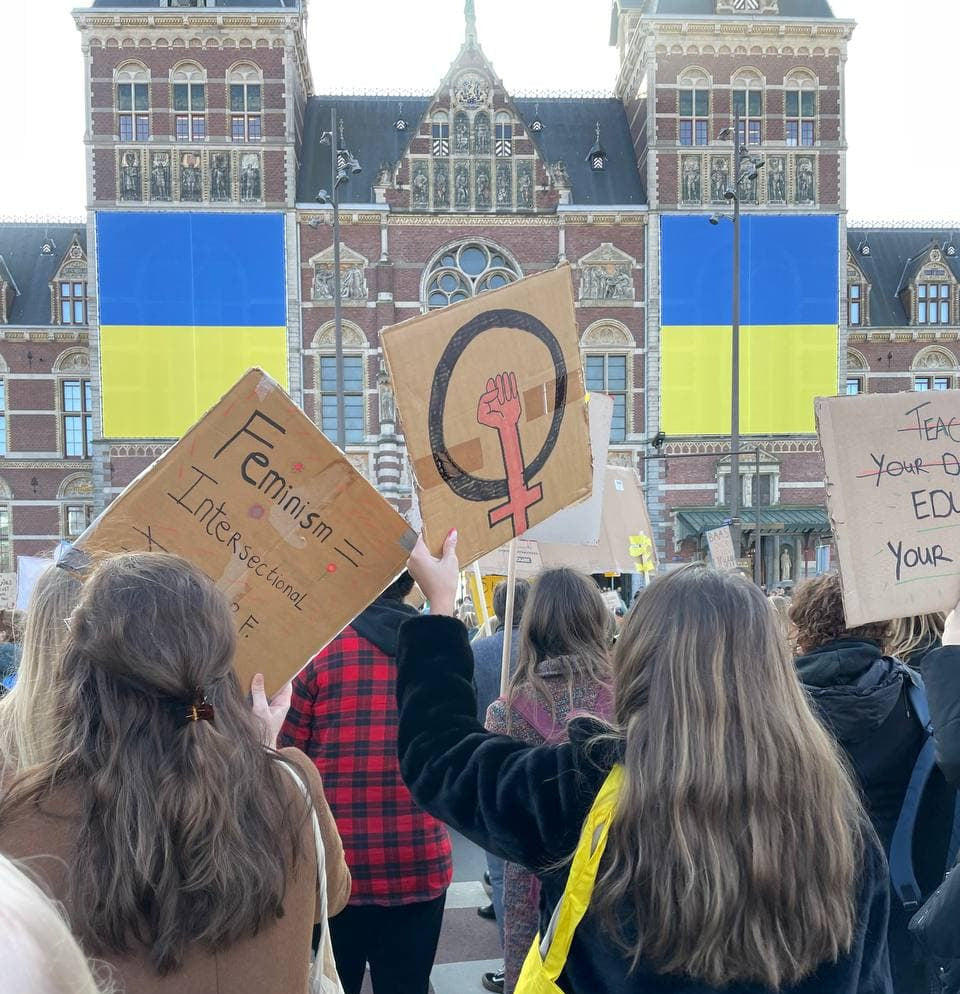
International Women’s Day and women in crisis
For this year’s International Women’s Day, I want to dive into what it means to be a woman during times of crisis. Be it during war or the climate crisis, women and other marginalized groups pay the highest price.
During and after wars, pre-existing inequalities are often amplified. I do not mean to play down the role of men in the military. I want to focus on the humanitarian crisis that comes with war. In light of recent events in Ukraine, UN human rights experts have stated that “history has repeatedly shown that the outbreak of conflict and war increases the exposure of women and girls to war crimes, especially all forms of gender-based violence, arbitrary killings, rape and trafficking”, thereby urging the protection of women as well as their involvement on a political level (Geneva March 4th 2022). In October 2000, the UN security council called for the active participation of women on the peace table. The resolution, however, did not include a formal mechanism to ensure the deployment of female peacekeepers. Therefore, to this day women’s voices in conflict areas are mostly ignored.
In 2021, the scientific journal Frontiers in Public Health published an estimation that stated that civilian casualties make up 65-70% of deaths of modern warfare. Therefore, women and children are the most vulnerable and least protected during armed conflicts when law and order can no longer be ensured.
Furthermore, women are not only victims of war but are often charged with the task of upholding social structures by working as frontline healthcare workers, ensuring unpaid care work and mobilizing communities during and after conflict. Feminists around the world also strongly condemn border discrimination against genderqueer and transgender persons being denied passage for their gender identity. We also condemn the denial to leave the country for Black Ukrainians, migrants of colour and members of the African Diaspora. Everyone should have a right to seek safety and flee war.
Being a feminist means being against war, in Ukraine and any other place. We call for demilitarization and an end to military and humanitarian crises everywhere. The safety of human beings should stand above all ideological goals.
In this context, I also want to talk about the effect the climate crisis has on women. Many ecofeminists have argued that climate change is very closely linked to women’s issues, not only because women are the first to suffer from the climate crisis but also because the same power structures responsible for climate change are responsible for the oppression of women. In short, capitalism and the patriarchy are responsible for climate change and the oppression of women.
“Across the world, women depend more on, yet have less access to, natural resources.” (UN women 2022) As women make up 70% of people living in poverty globally, we are more vulnerable to the dramatic consequences of the climate crisis. What adds to this is that “Worldwide, women have less access than men to resources such as land, credit, agricultural inputs, decision-making structures, technology, training and extension services that would enhance their capacity to adapt to climate change.” (Balgis Osman-Elasha, UN) Women are dominant in food production but own less than 10% of the land. They are often excluded from decision-making processes and environment management benefits. This deprives them of opportunities to actively confront climate change. Drought and erratic rainfall are increasing due to climate change. With agriculture being the most important employment for women in underprivileged areas, they are forced to work harder and earn less.
Apart from the severe economic disadvantages women face amid the climate crisis, women are also socially more vulnerable. Generally being the prime caretakers during natural disasters – which are becoming increasingly frequent due to climate change – women tend to work a lot more to ensure the livelihood of their household. In underprivileged countries, this often means that women have less access to education and training that could enable them to earn more money.
The most recent IPCC report has shown that climate crisis is no longer a problem of the future but already has an acute effect on the most vulnerable parts of society.
I strongly recommend this article by the UN women’s commission published for the 2022 International Women’s Day https://www.unwomen.org/en/news-stories/explainer/2022/02/explainer-how-gender-inequality-and-climate-change-are-interconnected
When facing crises of any kind, we need to be aware of their effects on the most vulnerable, on women, children, queer people, and any other marginalized group. Feminism is a fight for all women and the International Women’s Day needs to serve as a yearly reminder that we need to keep fighting until all women are free.
